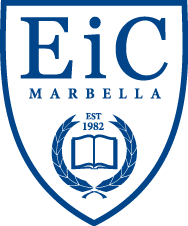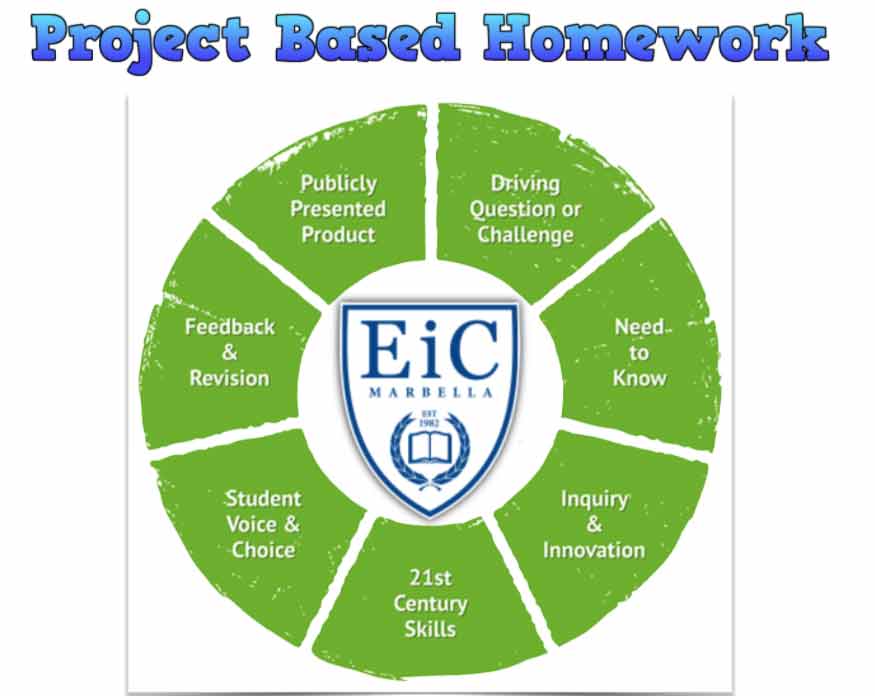
Updated on: Thu Oct 22, 2020
The Fundamentals - Homework Policy
At EIC, we are keen to encourage excellent home/school links and our approach to homework highlights our values and beliefs as a primary school. Homework is part of a continuous learning process and should be considered to be anything that is done outside of the normal school day. It should embrace and encompass a wide variety of activities, which are a response to the learning that has taken part during lessons.
We place a very strong emphasis on the Fundamentals of Learning. The areas of: Reading, Spellings, Times tables and Mental Agility will be expected to have regular time spent on them at home. We will follow this up at school and use the Reading Logbook, weekly spelling test and maths lessons to ensure that progress is consistent. As a minimum, we would expect children in Foundation Stage to have been heard read by an adult 2 times a week, and children in Key Stages 1 and 2 to have been heard a minimum of 3 times. This reading is expected to be signed and commented upon in the Reading Logbook.
Firefly is our educational platform that teachers use and add to regularly with suggested tasks, activities, quizzes, challenges and discussions. This year, we have also added Primary Subject pages, initially for English, Maths and Science, but with a vision to extend this to other subjects. These pages will host opportunities for wider reading, ideas for home learning including experiments and activities that could be done as a family and a focus on a poet/author and scientist of the month.
The grid below gives you clear insight into the home learning goals of each year group as they move up through the school. These are our expectations and we hope they are useful for families to understand the relationship between home and school.
In addition to this, children are also asked to complete a project based on either a Humanities or Science topic. Children are given clear guidance on how to approach these personal projects, and encouraged to take them in their own direction, reflecting their preferred learning style. It is well-known that good study habits established at an early age have a positive impact on preparing pupils for their lives as students at secondary school, in further or higher education and life beyond. We are excited to foster these independent learning skills and support children in creating something personal, unique and inspiring. Projects begin in Year 1 and run through to Year 6. Each student works on one project per academic year and has the opportunity to present their work at our Primary Project Exhibitions.
We value the support of parents/carers and we believe that this policy will be successful if there is a strong partnership between home and school. We recognise and acknowledge that all children need leisure time and hope that our policy reflects a balance, so that children can extend and consolidate their learning with parental support, while still allowing ‘free time’. To our parents, we ask that you encourage your child to make full use of the opportunities and experiences that are so readily available to them outside of school, so that they maximise their talents and skills.
Homework at EIC
|
Early Years |
Reading 2 x a week with an adult, recorded in Logbook. 10-15 minutes. |
Key words (high achieving students, when the teacher sees that they are ready). |
Show and tell activities (create a picture, take a photo, bring something in, go on a nature walk etc). Children share in class. |
Recommended websites/apps that support curriculum - optional for children to use at home. List available on FF pages. |
Short optional holiday projects e.g. Easter holiday scrapbook made as a family. |
|
|
Reception |
Reading 3 x a week with an adult, recorded in Logbook. 10-15 minutes. |
Key words Weekly phonic spellings -from Spring Term |
Show and tell activities (create a picture, take a photo, bring something in, go on a nature walk etc). Children share in class. |
Recommended websites/apps that support curriculum - optional for children to use at home. List available on FF pages. |
Short optional holiday projects e.g. Easter holiday scrapbook made as a family. |
|
|
Year 1 |
Reading 3 x a week with an adult, recorded in Logbook. 10-15 minutes. |
Key words, reading and spelling - tests every half term. Weekly phonic spellings. |
Times tables using Percy Parker songs. Follow Year 1 pages on FF for suggested activities, videos and songs. |
1 x project This is either Humanities or Science based, the teacher chooses. Project introduced Spring 2 and finished in Summer. Use Easter holidays to also help with time. Grid given for guidance. |
Spanish - follow pages on FF for suggested activities, videos and songs. |
|
|
Year 2 |
Reading 3 x a week with an adult, recorded in Logbook. 10-15 minutes. |
Key words, reading and spelling, regular tests. Weekly phonic spellings. |
Times tables using Times Table Maths passport and Percy Parker songs. Follow Year 2 pages on FF for suggested activities, videos and songs. |
1 x project This is either Humanities or Science based, the teacher chooses. Project introduced Spring 2 and finished in Summer. Use Easter holidays to also help with time. Grid given for guidance. |
Spanish - follow pages on FF for suggested activities, videos and songs. Native group - Lengua, Ciencias Sociales and Ciencias de la Naturaleza test after each unit. |
|
|
Year 3 |
Reading 3 x a week with an adult minimum, recorded in Logbook. 10-15 minutes. |
Weekly spellings with an activity to complete |
Times tables test each week - individualised Use of TT Rockstars Arithmetic paper to review |
1 x project This is either Humanities or Science based, the teacher chooses. Summer Term. Grid given for guidance. |
Spanish - follow pages on FF for suggested activities, videos and songs. Native group - Lengua, Ciencias Sociales and Ciencias de la Naturaleza test after each unit. Non-natve group: vocabulary posted on FF on Friday. |
|
|
Year 4 |
Reading 3 x a week with an adult minimum, recorded in Logbook. 10-15 minutes. |
Weekly spellings with an activity to complete |
Times tables test each week - individualised Use of TT Rockstars Arithmetic paper to review |
1 x project This is either Humanities or Science based, the teacher chooses. Summer Term. Grid given for guidance. |
Spanish - follow pages on FF for suggested activities, videos and songs. Native group - Lengua, Ciencias Sociales and Ciencias de la Naturaleza test after each unit. Non-natve group: vocabulary posted on FF on Thursday.. |
French - vocabulary posted each week on FF and paper copy given. |
|
Year 5 |
Reading 3 x a week with an adult minimum, recorded in Logbook. 10-15 minutes. Reading task |
Weekly spellings with an activity to complete. Grammar or Reading hwk given in Summer Term. |
Times tables test each week - individualised Use of TT Rockstars Arithmetic paper to review |
1 x project Topic decided by the teacher. Spring Term. Grid given for guidance. |
Spanish - follow pages on FF for suggested activities, videos and songs. Native group - Lengua, Ciencias Sociales and Ciencias de la Naturaleza test after each unit. Non-natve group: vocabulary posted on FF on Friday. |
French - vocabulary posted each week on FF and paper copy given. |
|
Year 6 |
Reading 3 x a week with an adult minimum, recorded in Logbook. 10-15 minutes. Reading task |
Weekly SPAG or reading comprehension with a specific reference to current learning in preparation for Year 7. |
Times tables test each week - individualised Use of TT Rockstars Arithmetic paper to review |
1 x project Open ended title. Spring Term. No grid given - encouraged to make the project personalised. |
Spanish - follow pages on FF for suggested activities, videos and songs. Native group - Lengua, Ciencias Sociales and Ciencias de la Naturaleza test after each unit. Non-natve group: vocabulary posted on FF on Friday. |
French - vocabulary posted each week on FF and paper copy given. |
EIC Primary Project - building on the foundations

Key Stage 1 (Year 1 and Year 2)
Lower Key Stage (Year 3 and Year 4)
Launch lesson - parents are invited in to a lesson*. They work alongside the children, usually to complete a challenge before the project title is revealed. By the end of the session, they have to guess what the project is about. Builds on from what they have started in KS1.
Upper Key Stage 2 (Year 5 and Year 6)

We recognize the importance of choosing the right school for your family and we are here to help. Please take the time to read through the Admissions pages to familiarise yourself with the admissions process, but don't hesitate to contact us if you have questions.
When you are ready please visit the Making an Enquiry page to begin the process of joining us.